After travelling from Sulawesi, Indonesia, Wei (whose full name has been withheld to protect his identity) and his friends planned to sneak into Malaysia through the east coast of Johor after dark last year.
However, the five, who were swimming towards the shore after the boatman dropped them off when the water was at waist-level, heard two warning shots, which pierced the stillness of the night.
Stricken with fear, the Chinese nationals stopped in their tracks and waited for the authorities to arrive. Their hope of returning home was dashed.
“We were just too scared to run,” recalled Wei, who has since returned to China, in an interview with Malaysiakini.
Official records revealed that the five were taken to the Setia Tropika Immigration Office in Johor Bahru after testing negative for Covid-19.
Wei and his friends were labourers from Henan, China, who went to Sulawesi after being promised generous wages and benefits in a China-owned nickel mining venture.
However, what they faced upon taking their jobs were long working hours, low pay and a dangerous working environment. After several months, the five decided to return home.
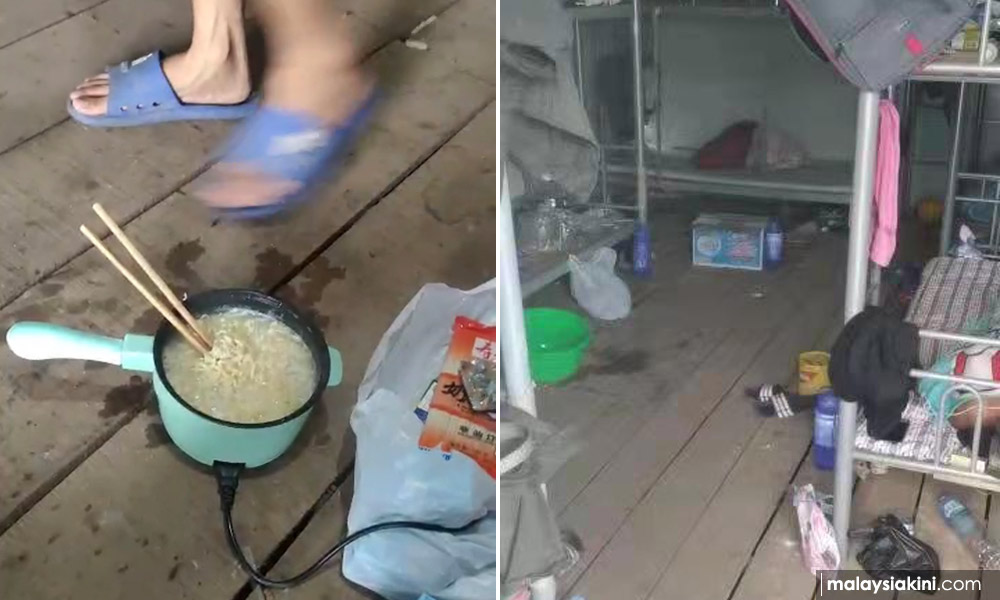
This, however, proved to be a problem because their employer had their passports. So out of desperation, the five contacted a local “snakehead” (smuggler), who was fluent in Chinese.
The “snakehead” convinced them the risks were minimal and the five could secure legal travel documents in Malaysia as long as they were willing to fork out some cash.
Wei said after fleeing from their factory, they boarded a flight from Kendari in Southeast Sulawesi to Jakarta and then made their way to Batam Island, some 15 nautical miles from Singapore. After a few days, they moved to another island nearby.
“The process (in Indonesia) is that as long as you have money, anything can be done. When we took the flight, we did not have to queue or go through security checks and Covid-19 tests,” he claimed.
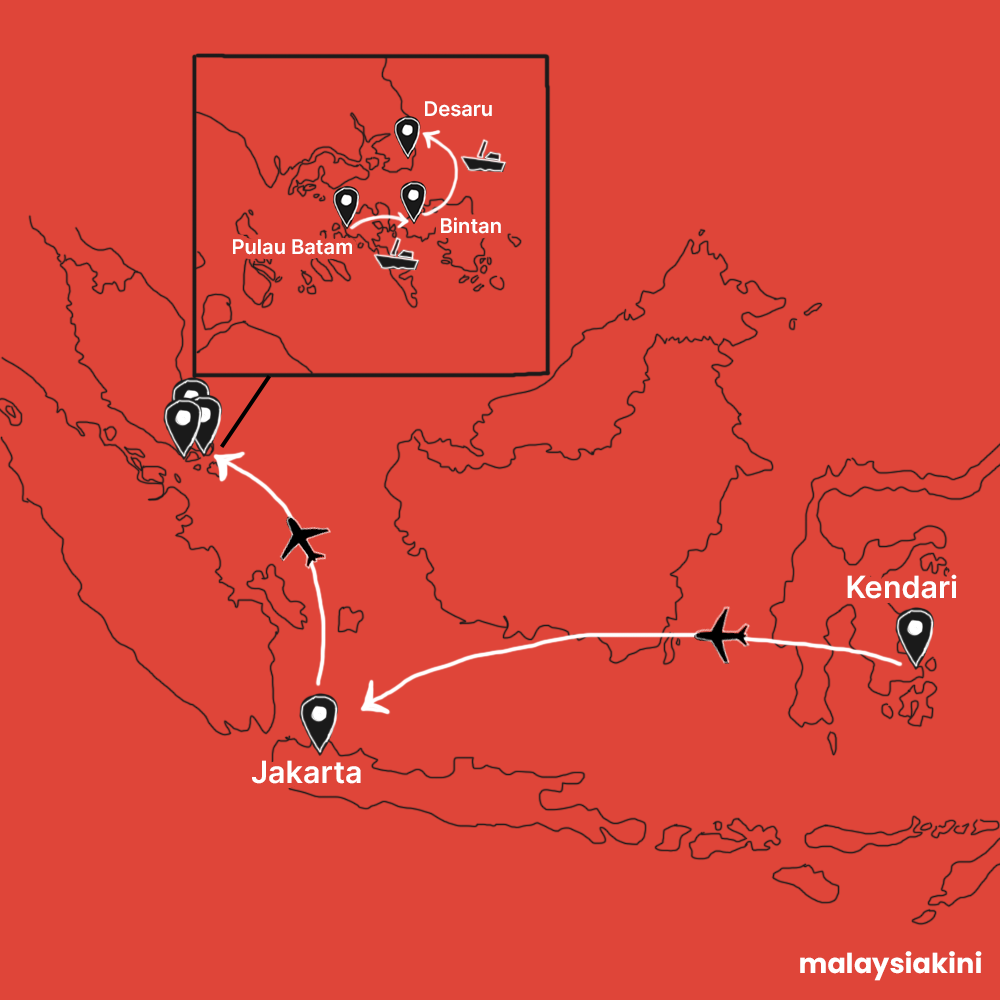
Due to this, the five were convinced that things would proceed smoothly until they reached China.
“But when the Malaysian authorities spotted us, I thought I was going to die. The episode still sends a shiver when I think about it,” Wei said, recalling the 3,000km journey.
After being detained at the Setia Tropika Immigration Office for more than 20 days, the five were transferred to the Pekan Nanas Immigration Depot.
Severe skin infections
Speaking about the conditions at the detention centre, Wei said he suffered from itchiness and pustules. He claimed that it was difficult to get medication from the officers.
It has been five months since Wei returned to China but his body remains covered in red marks, an unsightly reminder of his ordeal in Malaysia.
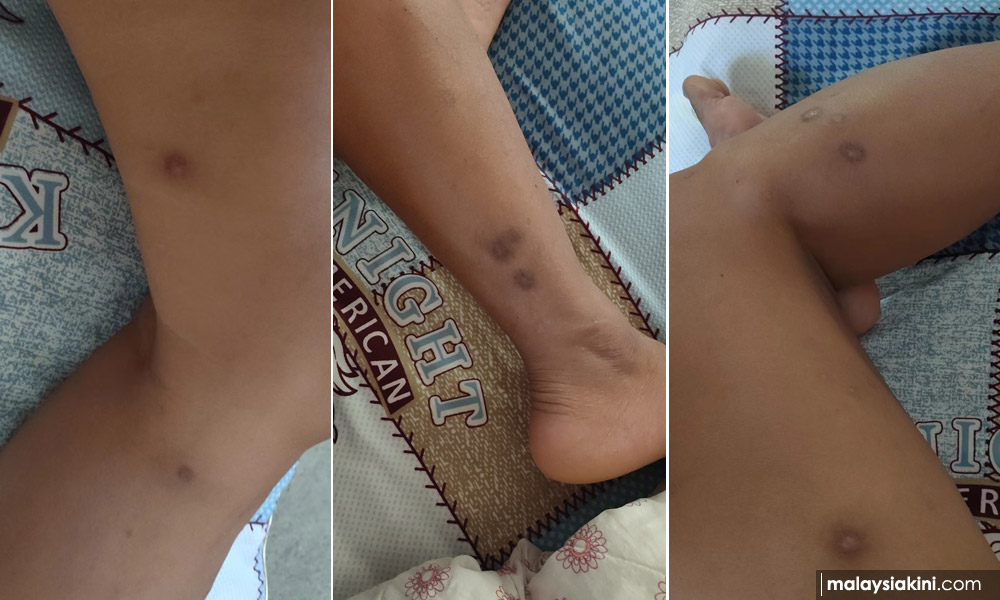
Guo, who was the last among the five to be repatriated, suffered the most serious skin infection.
“Sometimes our bodies cannot adapt to a new environment... those little white pustules or eczema that developed were torturous and unbearable. The body was always itchy. The biggest problem is getting medicine,” he said.
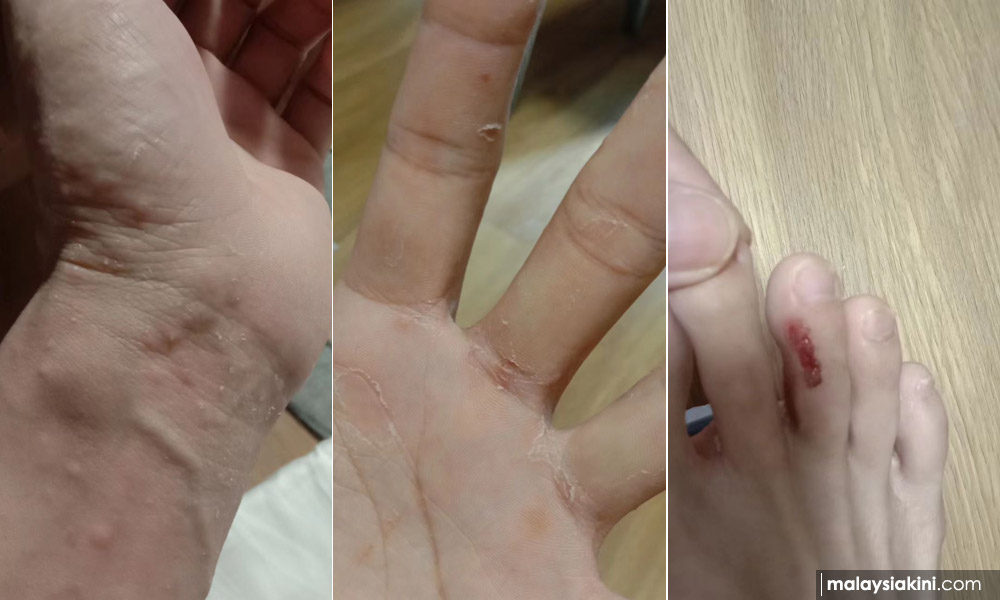
Guo said when he scratched the infected areas in the absence of medication to subdue the itch, the condition worsened.
He was also afraid to bathe, fearing he would contract some other illness. So he used what little drinking water he could spare to cleanse himself.
“Only two or three ladles were provided to scoop the water but there were 20 to 30 people bathing at the same time. So we could only use our hands to scoop the water.
“I was shocked when I saw their bodies, there were boils and skin ulcers all over, including on their private parts and they were also using their hands to scoop the water,” he added.
'I was fortunate'
During his last few months in detention, Guo was transferred to a smaller cell where he had access to tap water. However, the skin infection persisted due to unsanitary conditions.
According to him, the inmates slept on the concrete floor because the wooden beds were infested with insects. Even on the floor, they were not spared.
During his eight-month detention, Guo claimed he was only taken for treatment twice.
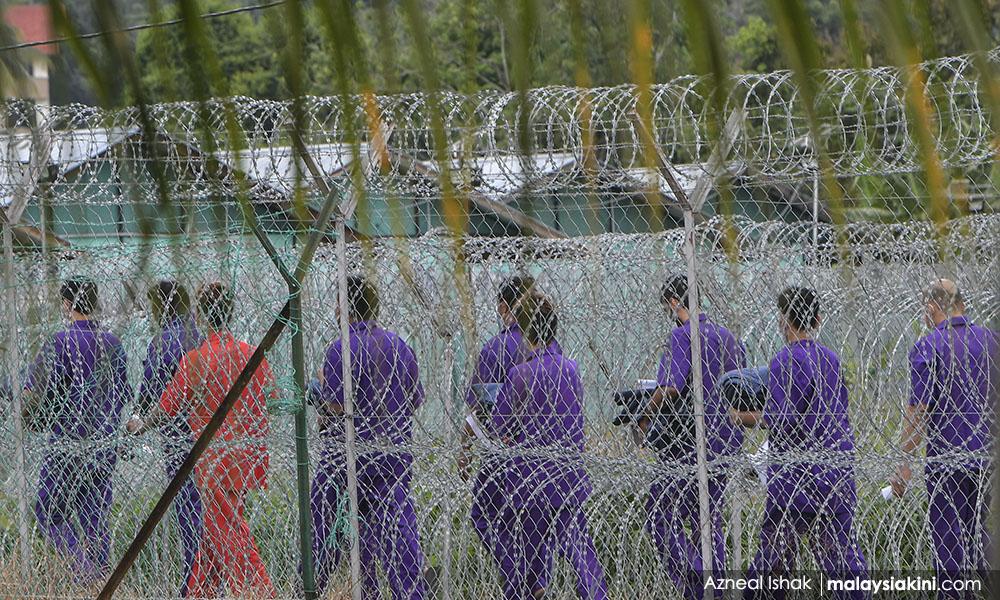
Despite this, the Chinese national considered himself “fortunate” because the skin infections of other inmates were worse and there was no chance for them to see a doctor.
“Our lawyer brought medication but the medical assistant and officers didn't let me have them until the infection became serious. Sometimes, they used this medication for the others as well,” he claimed.
Lawyer Lau Yi Leong had acted for the five on a pro-bono basis. The men were sent back to China in batches since last December, with Guo being the last to return in May this year.
During their detention, Lau told Malaysiakini that he only met the five, in person, once due to not having access. They often communicated through the telephone.
“The men could not speak any other language. So it was up to me to convey their situation, including about their skin infections, to the Immigration Department,” he added.
Lau lamented that lawyers and human rights groups had no knowledge about what was happening within the detention centre as the place was "under the radar".
“Fortunately, the Immigration official who handled the case was professional and patient. Despite the restrictions and red tapes, we were able to send them back in such a short period,” he said.
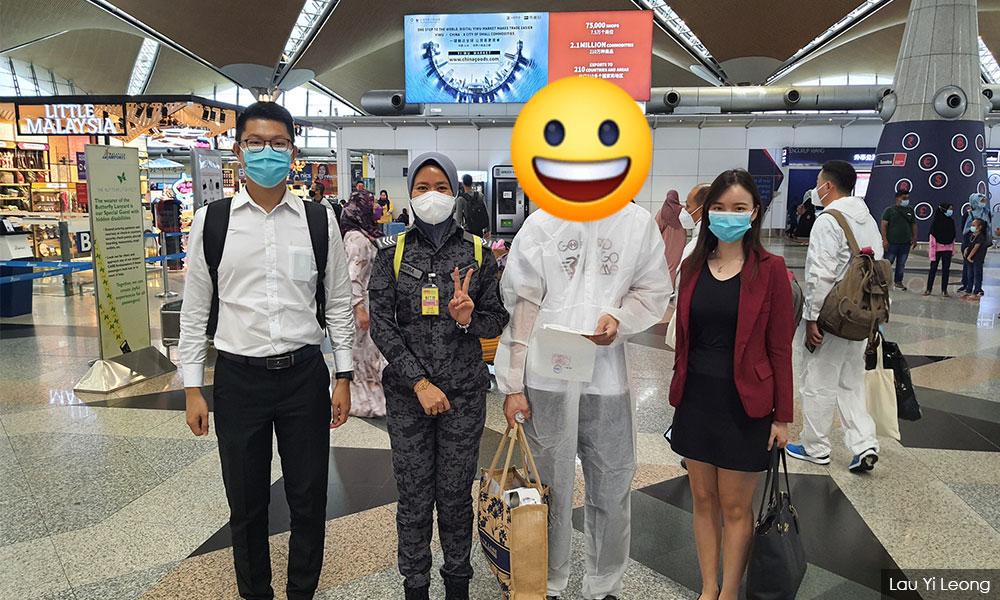
Scabies outbreak menace
In a statement last February, the International Committee of the Red Cross (ICRC) stated that scabies was a major health problem in detention centres across the world, including Malaysia.
The ICRC and the Immigration Department have teamed up for a scabies mitigation campaign covering all immigration detention centres and temporary detention centres nationwide.
Meanwhile, a report released by the Sovereign Migrant Workers Coalition (Koalisi Buruh Migran Berdaulat) in October 2020 revealed that Indonesian migrants detained at temporary detention centres in Sabah endured cruel and inhumane conditions.
At the same time, Suhakam repeatedly highlighted the scabies outbreak in detention centres in its annual reports.
In its 2019 annual report, the commission said there was a severe problem of scabies at the Machap Umboo Immigration Depot and medicines were inadequate.
The report also stated that bath soap, laundry detergent and toothpaste were only provided once to detainees. This was also a contributory factor to skin diseases such as scabies.
Wei and Guo also experienced the same predicament. The pair had to later pay for other necessities.
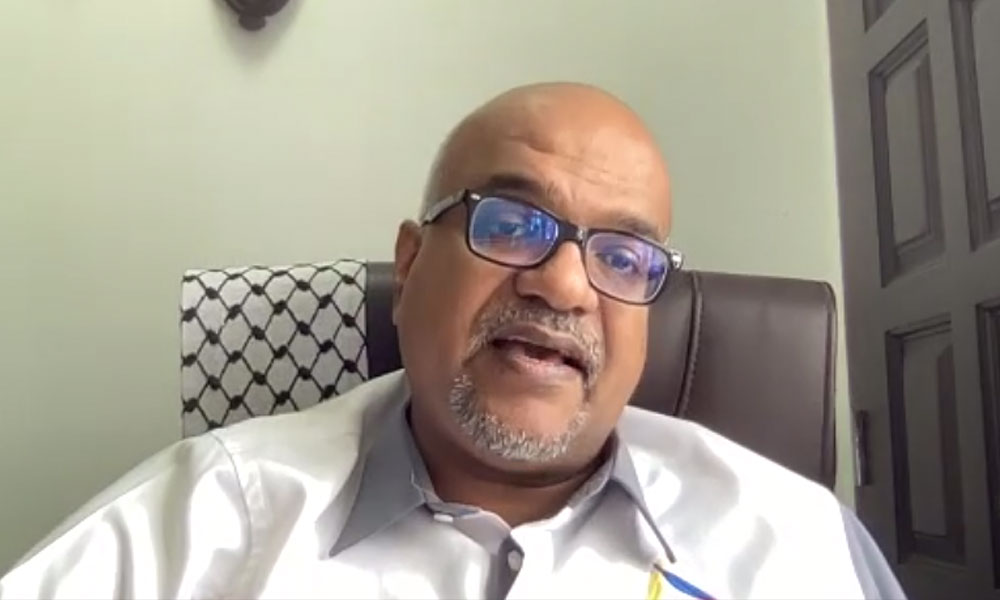
Former Suhakam commissioner Jerald Joseph said the commission previously had set up an interagency committee that included the Health Ministry and ICRC to tackle the scabies outbreak in detention settings.
“In previous meetings, I think everyone acknowledged the health issues and they agreed to look for solutions like better medicine and clean mattresses,” Jerald recalled.
Commenting on Wei and Guo being allegedly ignored over their requests for medication, he said: “If true, this is serious. I must ask them to submit a complaint to Suhakam or other agencies in order to start an investigation.
“Every prison and Immigration Depot has a doctor or medical assistant. Treatment is a basic right,” Jerald added.
Malaysiakini has contacted the Immigration Department for comment. - Mkini



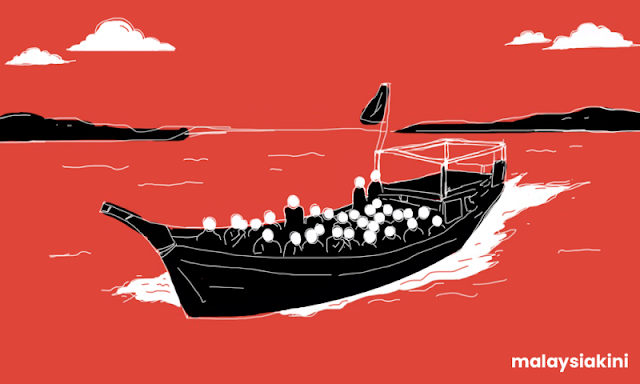
No comments:
Post a Comment
Note: Only a member of this blog may post a comment.